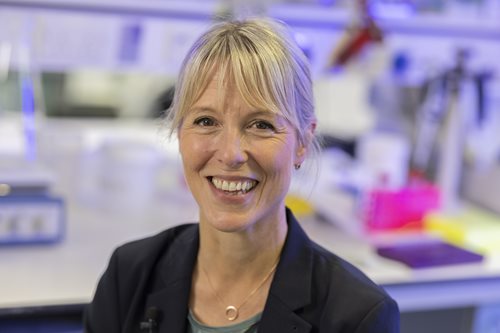Interview with Professor Mererid Evans, Co-chair of ICHNO
The International Congress on Innovative Approaches in Head and Neck Oncology (ICHNO) is recognised as a leading platform for advancing knowledge, fostering collaboration, and shaping the future of care in this complex field. In the lead-up to ICHNO 2026, we spoke with Professor Mererid Evans, Co-chair of the Congress, to learn more about the vision behind the programme, the importance of multidisciplinary collaboration, and the innovations that will be showcased in Seville. From biology-driven breakthroughs to patient-centred approaches, Professor Evans shares insights into what promises to be a dynamic and inspiring meeting for the head and neck oncology community.
Interview with Professor Mererid Evans, Cardiff University and Velindre University NHS Trust, Wales (UK).
What inspired the theme “Driven by Biology, Centred on the Person: A New Approach to Head and Neck Cancer” for ICHNO 2026, and why do you think this approach is important for head and neck oncology?
Our field of head and neck cancer is evolving quickly – discoveries are being made that are leading directly to better treatments in the clinic, and new data is being generated that is allowing us to better predict outcomes and select the right treatments for our patients. This interplay of science and the individual is key to the future management of head and neck cancer, as will be demonstrated at ICHNO 2026.
How does the collaboration between ESTRO, EHNS, and ESMO enhance the congress and benefit attendees?
Treating head and neck cancer patients is a multidisciplinary endeavour, requiring close working between surgeons, oncologists, radiologists, pathologists, nurses, allied health professionals and others. Working together, our European societies for oncology and surgery have developed a balanced scientific programme, which will be of interest and relevance to all members of the head and neck multidisciplinary team, and will forge a greater understanding across disciplines to benefit our future practice.
What are some of the most exciting innovations or research topics that participants can expect to learn about at this congress?
We are going to learn about major changes in the TNM classification of head and neck cancers and the clinical implications of these changes. We will also consider the latest evidence for immunotherapy before and after surgery in head and neck cancer, and for deintensification of treatment in nasopharyngeal and other cancers. Moreover, we will learn about novel therapies which are on their way to the clinic, and advances in AI, surgery and survivorship. It is a packed agenda!
How does ICHNO 2026 aim to facilitate multidisciplinary collaboration, and why is this important for advancing patient care in head and neck oncology?
Our cross-cutting agenda features multidisciplinary symposia and an interactive tumour board where the voices of the whole multidisciplinary team will be heard. Our keynote lectures cover a broad range of topics, from surgery to survivorship, staging to surveillance, which will be of interest across the multidisciplinary team. Understanding the advances and limitations in each other’s disciplines is key to fostering close working relationships and making the right treatment decisions for our patients.
What message would you like to share with potential attendees about the value of joining this congress in Seville?
We urge you to join us in Seville, not only to enjoy this beautiful Spanish city, but also to hear the latest discoveries and developments in head and neck cancer in the company of friends and colleagues, and to perhaps leave with new insights, ideas and perspectives on this wonderful discipline of ours.

Mererid Evans (ESTRO)
Professor, Wales (UK), Cardiff University and Velindre University NHS Trust